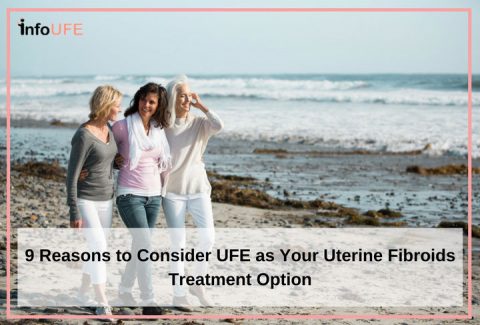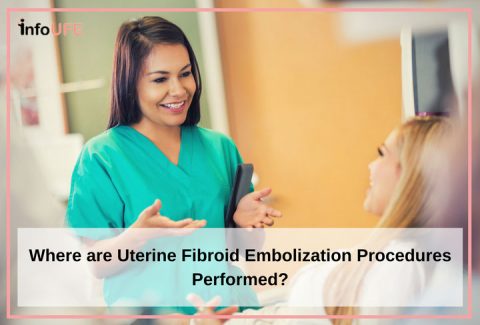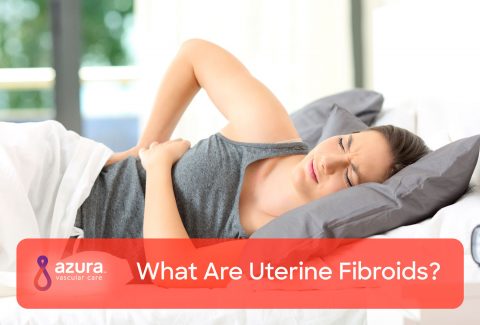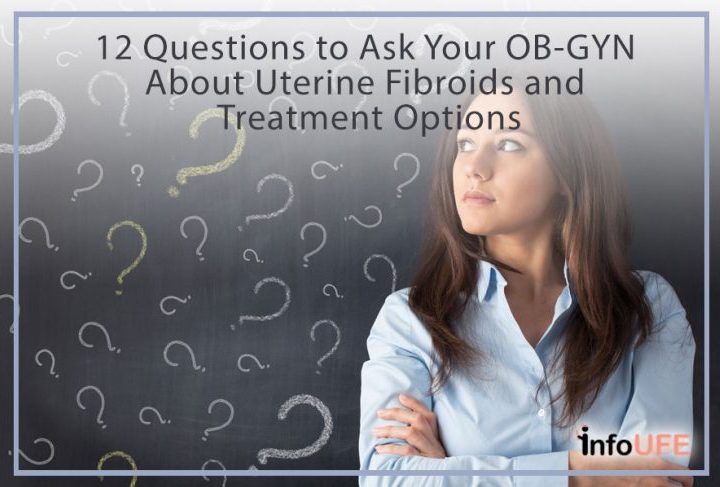
Have you been thinking about making an appointment to discuss your uterine fibroid treatment options? These non-cancerous tumors of the uterus are fairly common, but like most women, you probably have a lot of questions to ask about uterine fibroids and what the best treatments are. It may be helpful to visit your gynecologist with a prepared list. Having a list can help you organize your thoughts so you can be as informed as possible about all of your options before you make a decision.
Depending on several factors, one option for treatment may be uterine fibroid embolization (UFE), a minimally invasive alternative to surgery that’s performed as an outpatient procedure by an interventional radiologist.
You will likely have more questions than those that are here, but this list is intended to get you started, so when you make your appointment with your OB-GYN, you’re prepared.
Questions to Ask Your OB-GYN Fibroid Treatment Options
1. Do I Need Treatment? Uterine fibroids can be completely asymptomatic, causing no problems, or they can cause severe pain, loss of blood and significantly affect quality of life. The mere presence of fibroids is generally not enough of a reason to have them treated. Your gynecologist should be able to tell you if your symptoms are related to your fibroids and whether the symptoms are significant enough to seek treatment.
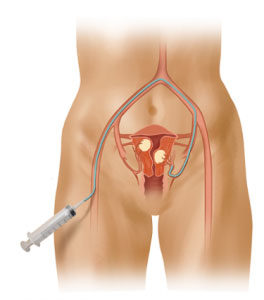 2. What Are My Options? – There are a variety of treatment options for uterine fibroids, but not all of them require surgery or need to performed in a hospital. . Your gynecologist should be able to give you some direction as to which options may be right for you.
2. What Are My Options? – There are a variety of treatment options for uterine fibroids, but not all of them require surgery or need to performed in a hospital. . Your gynecologist should be able to give you some direction as to which options may be right for you.
3. Are There Options Besides Surgery? – Many women may be aware of hysterectomy, or total removal of the uterus, as a treatment for fibroids, but there are other options that are minimally invasive with shorter recovery time, such as UFE, that are worth learning more about.
4. What Are the Risks of Surgery? – All surgeries come with risk. The two typical surgeries for fibroids, hysterectomy and myomectomy, which involves removing one fibroid at a time, come with the risk of bleeding and infection. It can take up to 6 weeks to recover from surgery.
5. What Are the Chances the Fibroids Return After Treatment? – You will want to know if you are going to be faced with having to make another treatment decision in the future.
6. When Will I Feel Better? – Recovery time will vary depending on which treatment option you choose. Minimally invasive treatments do have a shorter recovery time compared to surgeries. The time it will take for your symptoms to improve can also vary. It’s a good idea to know what to expect.
7. Is There Anything I Can Do to Prevent Fibroids? – Often, there is little that can be done to stop the growth of existing fibroids, but your gynecologist may be able to provide some guidance on how to lessen the chances of fibroid growth in the future.
8. I’m Considering UFE – Do You Work With an Interventional Radiologist? – Because UFE is performed by an interventional radiologist, your gynecologist may know one who has been successful in treating other patients. If you are seriously considering UFE, you’ll want to talk to an interventional radiologist to determine if you are a candidate for this outpatient procedure. Find an Interventional Radiologist near you.
RELATED: Who Performs UFE Procedures?
9. Are the Fibroids Hurting my Chances of Getting Pregnant? – Fibroids can play a role in the ability of a woman to have a successful pregnancy. Your gynecologist may be able to let you know if the fibroids are making it more difficult for you to get pregnant. i
10. How Will Treatment Affect my Chances of Getting Pregnant? – Some treatments may improve your ability to get pregnant and it is best to ask your gynecologist who knows your particular situation.
11. I Definitely Still Want to Have Children After Treatment. What Are My Best Treatment Options? – The desire to get pregnant in the future may change what treatment options are available to you. You should be completely honest with your doctors about your future plans and goals. If pregnancy is a goal, a hysterectomy, which removes the uterus completely, would not be the right treatment option.
12. What Treatment is the Best Option for Me? – While the final decision on which treatment option to pursue is ultimately up to you, you should feel free to ask for your gynecologist’s opinion. He or she will consider what your symptoms are, where the fibroids are, what your past experience with fibroids has been, and what your future plans are.
Your gynecologist knows your history with uterine fibroids and should be able to provide you with guidance on if you need treatment and what treatments are good options for you. If you are considering UFE, remember it’s best to discuss your history and future plans with an interventional radiologist to discover if this minimally invasive approach is a viable option for you.
Sources:
i Cook, H., et al., The Impact of Uterine Leiomyomas on Reproductive outcomes. Minera Ginecol, 2010. 62(3): p. 225-236.
